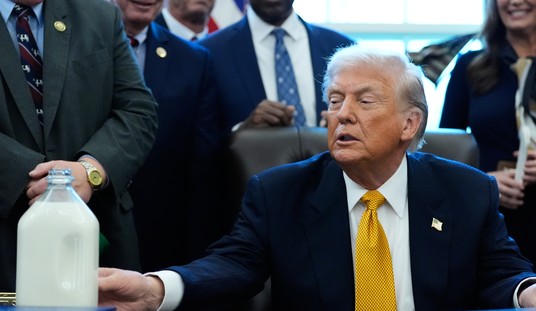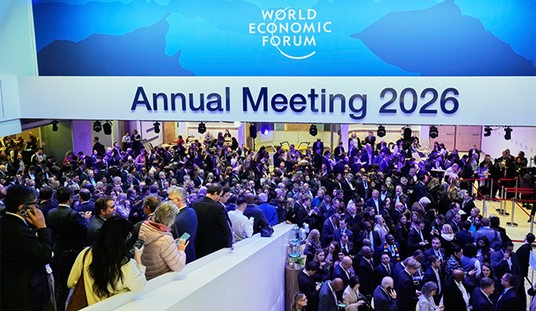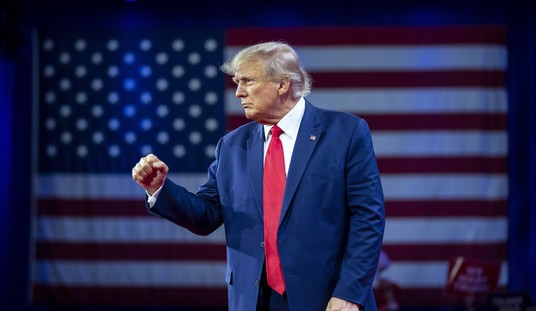“Are we going to surrender Venezuela’s sovereignty?” Nicolas Maduro cried out today as thousands of Venezuelans thronged in the streets to protest his dictatorship. At this point, his subjects might be willing to make that trade, or at least that’s what opposition leader Juan Guaido hopes. Earlier today, Guaido declared himself the interim president of Venezuela, taking the oath of office as protesters filled the streets:
BREAKING: Venezuela's Guaido takes oath swearing himself in as interim president pic.twitter.com/agnqGG1Hzg
— Reuters World (@ReutersWorld) January 23, 2019
He may get US support immediately. Reuters reports that the Trump administration has discussed recognizing a Guaido government if the assembly leader took this step. That aggressive move might play either way:
U.S. President Donald Trump could recognize Venezuelan opposition leader Juan Guaido as the country’s legitimate president as soon as Wednesday, according to two people familiar with the matter.
Amid street protests in Venezuela, the Trump administration is preparing an announcement of its formal support for Guaido, head of the opposition-led Congress, but is waiting to see whether he will declare himself interim president, something he has so far refrained from doing, the sources told Reuters.
Between yesterday’s ¡Hola! from Mike Pence and this leak from the White House, the US position on Guaido couldn’t be more clear. The Trump administration wanted Guaido to take the first step in declaring himself the legitimate leader of the country. Now that he has, will the rest of Venezuela’s institutions fall in line behind Guaido — or Maduro?
Maduro’s efforts to prorogue the parliament last week ignited the opposition, leading to today’s massive protests — the largest in two years:
Amid sharply rising tensions between Washington and Caracas, the U.S.-backed opposition here sought Wednesday to fill the streets with protesters and spark the beginning of a sustained uprising aimed at ousting President Nicolás Maduro from office.
Overnight, the smaller-scale protests that began on Monday started to spread, with a throng of demonstrators in Bolivar state setting alight a statue of Hugo Chávez, the leftist firebrand who established Venezuela’s socialist state and anointed Maduro as his successor before dying of cancer in 2013.
By midday Wednesday, at least one protester was reported dead. Barely an hour after they began, Wednesday’s protests were shaping up to be the country’s largest in two years.
The situation in the streets seems ripe for a change. It’s not the streets that count most, however. Popular support matters, but regime change in Venezuela will depend on whether the military has had enough of Maduro and the instability he has created. Without military support, Guaido has much more chance of ending up in prison than in the presidential palace. And so far, the military appears to be sticking with Maduro:
Buoyed by a telegenic new congressional chief, Venezuela’s opposition is daring to hope that President Nicolas Maduro’s days in office could be numbered, but the unpopular leader’s bedrock base – the armed forces – shows few signs of erosion. …
Bolstered by the United States and numerous Latin American neighbors promising to back the opposition in seeking a transition, the Guaido-led congress last week declared Maduro a “usurper” and asked foreign governments to freeze bank accounts controlled by his government.
But with the legislature stripped of its powers by a pro-government Supreme Court and few signs that the military high command is prepared to abandon Maduro, the spring in the opposition’s step and investor exuberance it has sparked may prove premature.
“The military leadership is faithful to Maduro and will continue to be until he’s gone,” said one active duty high-ranking military officer, who asked not to be identified.
Maduro shored up his support with the military by appointed some of its leading generals to important civilian posts, including and especially with PDVSA. Before they turn on Maduro, they’d have to be convinced that he’s no longer tenable as leader, in part because they’d have serious concerns about how a successor government would treat those who collaborated with Maduro. Guaido and the legislature have tried to address that with bills promising immunity to military leadership, but a popular coup can turn any number of ways — not the least of which would be toward a full-out military junta, which Guaido might inadvertently facilitate without much recourse to oppose it.
The old axiom applies to both Guaido and the US: Be careful what you wish for — you just might get it. The White House asked Guaido to leap without any real safety net. Guaido obliged, perhaps only be because there simply aren’t any other real options left. The military will either ratify this decision or put an end to the last democratic institution left in the country. And we likely won’t have to wait long for the answer.
Update: Both the US and Colombia wasted little time in boosting Guaido:
Today @POTUS announced the U.S. officially recognizes Juan Guaidó as the Interim President of Venezuela. To @JGuaido & the people of Venezuela: America stands with you & we will continue to stand with you until #Libertad is restored! pic.twitter.com/4W3hlGplql
— Vice President Mike Pence Archived (@VP45) January 23, 2019
#BREAKING Colombia backs Venezuela opposition leader Guaido as "president"
— AFP News Agency (@AFP) January 23, 2019
Where is the military?
Update: Brazil has also backed Guaido. However, the newly elected leftist president in Mexico refused, stating that they recognize Maduro as the legitimate president:
#BREAKING Mexico still backs Maduro as Venezuela president, says government spokesman
— AFP News Agency (@AFP) January 23, 2019







Join the conversation as a VIP Member